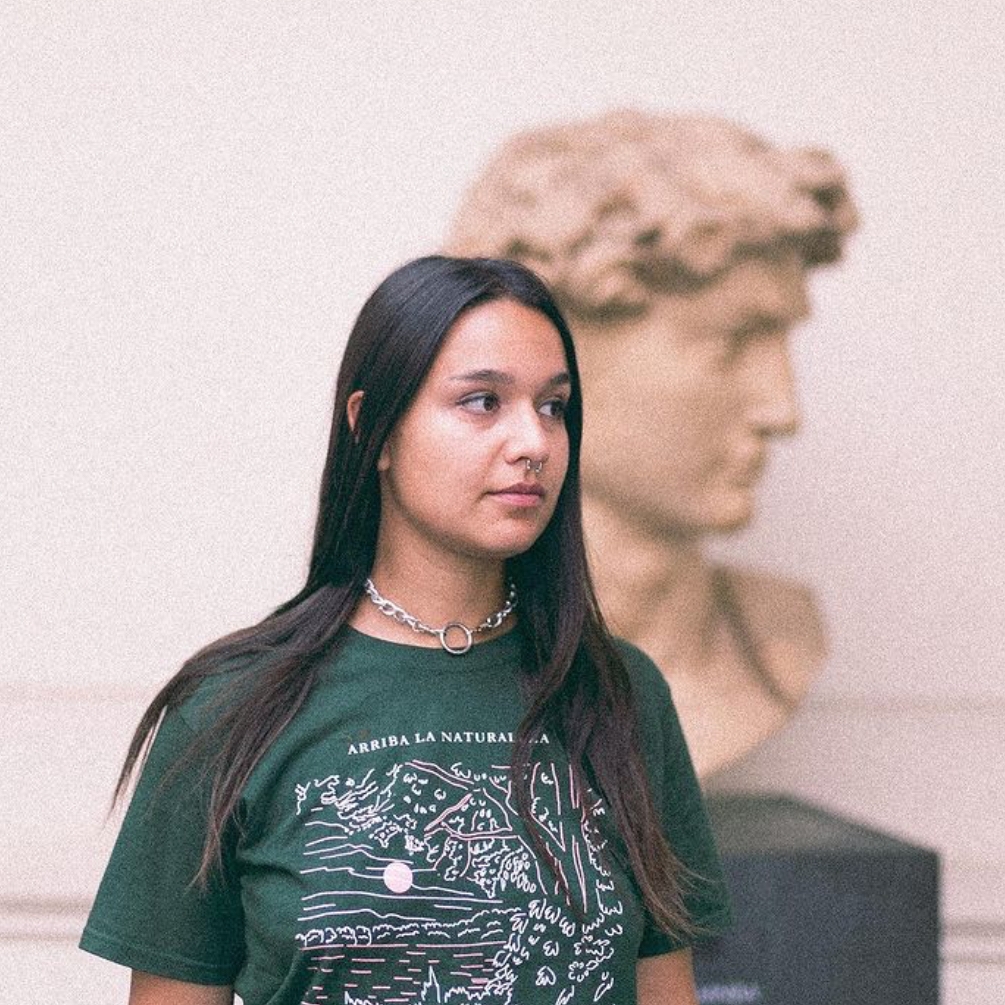LAURA IBAÑEZ Kuzmanic

Get to know Laura Ibáñez Kuzmanic
M.A. Arts Politics Class of 2023
How do you currently describe your practice?
I am a Chilean multimedia artist who believes that art is a collective practice. I explore feminism, friendship, and collectivity in Latin American spaces through performances, installations, and interventions.
I collaborate with art collectives. In my practice, I stage political performances with collectives in public spaces to protest against violence toward women in Chile. We frequently march with giant fabrics in the streets of Santiago making visible the blood, the anger, the danger, and the potential of human connections and sisterhood. My performances are ephemeral, using fire, our bodies, and recycled materials to confront police violence.
In my individual work, I question visual depictions of violence inflicted on women in classical art and reimagine these images as three-dimensional feminist idols of modern pop culture. Through the use of humor in archives and documents from the fine arts, in my practice, I’m looking for challenging the implications of Eurocentric art for Latin American communities by inviting the audience to participate and intervene in the works
What has been your favorite moment of your Arts Politics experience?
The people, my friends, the news connections, the professors. People I’ve worked with, people I love, or simply the new friends we made along the way; In APP work is perceived as enjoyment, collaboration, complicity, trust, freedom, and risk. Building together in APP is beautiful. I met new cultures and opened a new window of opportunity.
On the other hand, one of my favorite things about APP is that sharing and exchanging are perceived as methods: we exchange experience, information, knowledge, technique, and language tools. Learning about each other has been one of the best parts of this program.
What has been most challenging during your time in Arts Politics?
I am from Chile and coming from a country like mine to the great metropolis that is New York is never going to be easy. On the first day of University, I got lost in New York looking for a chip for a phone and that made me late for my first day of class. I remember that the first month I would arrive with a headache at my house because I had to get used to speaking another language. Until this day, I am still getting lost in the subway.
Change is always scary, change is challenging and sometimes it can be overwhelming. I had to adapt to understand how an institution works that works very differently from what I understood as an academic institution. Those are challenges when you’re studying in another country, but once you get over them it’s more fun to enjoy the experience.
What are you working on post-grad?
Immediately after graduating I will be participating in an artist residence in New York and working on my first solo show in Chile. But I also want to dedicate myself to reconnecting with people I haven’t seen in a long time and have time for myself: watch a movie, go to the beach, make a picnic with my friends.
On the other hand, in the future, I want to start working more on my artistic artwork and be able to approach these new investigations that I have started to do thanks to APP.
How has the Arts Politics program unfolded or shifted how you approach your work?
Works of art are moments in the long-term development of ideas and production. Exhibitions and projects are reports on this development. You have to enjoy the small detours, enjoy them a lot because it is in those detours that I enjoy being an artist the most. Enjoy the plot more than the outcome.